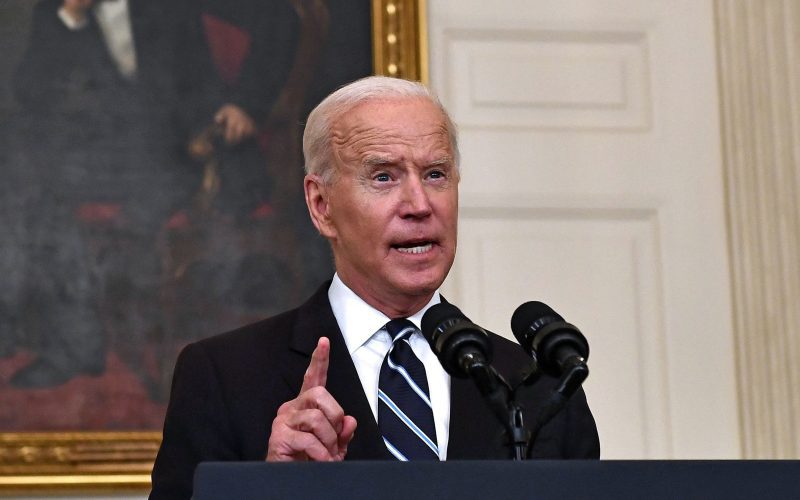On June 6, 2024, President Joe Biden delivered a poignant speech during the commemoration of D-Day, emphasizing the ongoing threats to democracy globally. This speech was not only a tribute to the courage and sacrifice of those who fought on the beaches of Normandy but also a clarion call to defend the democratic values they fought to preserve. Biden’s remarks come at a critical juncture in global politics, where authoritarianism and democratic backsliding pose significant challenges. This article delves into the key themes of Biden’s speech, the historical context of D-Day, and the contemporary threats to democracy, while providing analytical and comparative insights.
The Historical Significance of D-Day

D-Day, June 6, 1944, marks one of the most significant events of World War II, when Allied forces launched a massive invasion on the Normandy coast of France. This operation, codenamed Operation Overlord, was crucial in liberating Western Europe from Nazi occupation. The bravery displayed by the soldiers, many of whom made the ultimate sacrifice, laid the groundwork for the post-war democratic order. The commemoration of D-Day serves as a reminder of the cost of freedom and the ongoing responsibility to uphold democratic principles.
Biden’s Key Themes in the D-Day Speech
President Biden’s speech highlighted several critical themes:
- Remembrance and Honor: Biden began by honoring the fallen heroes of D-Day, acknowledging their bravery and the pivotal role they played in securing freedom and democracy. He emphasized that their sacrifice should never be forgotten.
- Current Threats to Democracy: Biden drew parallels between the past and present, warning of the contemporary threats to democracy. He pointed to the rise of authoritarian regimes, the erosion of democratic norms, and the spread of misinformation.
- Global Democratic Solidarity: The President underscored the importance of global alliances and partnerships in defending democracy. He highlighted the need for democratic nations to unite against common threats and support each other in maintaining democratic institutions.
- Call to Action: Biden urged citizens and leaders alike to take proactive steps in safeguarding democracy. This includes combating misinformation, ensuring free and fair elections, and promoting transparency and accountability in governance.
Contemporary Threats to Democracy
In his speech, Biden identified several modern challenges to democracy:
- Authoritarianism: There is a resurgence of authoritarianism in various parts of the world, where leaders undermine democratic institutions and concentrate power. Examples include Russia, China, and several nations in Eastern Europe and Africa.
- Misinformation and Disinformation: The digital age has brought about the rapid spread of misinformation, which undermines public trust in democratic processes and institutions. Social media platforms have been criticized for allowing the dissemination of false information.
- Electoral Integrity: Ensuring the integrity of elections is a cornerstone of democracy. However, there have been numerous instances of election interference, voter suppression, and manipulation, which threaten democratic governance.
- Economic Inequality: Economic disparities can lead to political instability and erode democratic values. When citizens feel disenfranchised and economically marginalized, they may lose faith in democratic institutions.
Analysis Table: Key Points of Biden’s D-Day Speech
| Key Theme | Explanation |
|---|---|
| Remembrance and Honor | Honoring the sacrifices of D-Day soldiers and their contribution to freedom and democracy. |
| Current Threats to Democracy | Addressing modern challenges such as authoritarianism, misinformation, and electoral integrity. |
| Global Democratic Solidarity | Emphasizing the importance of alliances among democratic nations to counter common threats. |
| Call to Action | Urging proactive steps to protect and strengthen democratic institutions and processes. |
Comparative Table: Historical vs. Contemporary Threats to Democracy
| Aspect | Historical Context (1940s) | Contemporary Context (2020s) |
|---|---|---|
| Nature of Threats | Fascism, Nazism, Imperialism | Authoritarianism, Populism, Misinformation |
| Methods of Undermining | Military aggression, Occupation, Propaganda | Electoral interference, Digital misinformation, Censorship |
| Geographic Focus | Europe, Pacific | Global, with significant issues in Eastern Europe, Asia, Africa |
| Defensive Measures | Military alliances (e.g., NATO), Liberation campaigns | International sanctions, Cybersecurity measures, Diplomatic efforts |
| Role of Technology | Radio, Print media | Social media, Cyber warfare |
Biden’s Call to Action: A Strategic Framework
In his speech, President Biden outlined a strategic framework for addressing the threats to democracy. This framework includes:
- Strengthening Alliances: Reinforcing alliances like NATO and building new coalitions to counter authoritarianism and support democratic resilience.
- Combatting Misinformation: Implementing stricter regulations on social media platforms to prevent the spread of false information and promote digital literacy among citizens.
- Promoting Electoral Integrity: Ensuring free and fair elections through robust electoral laws, independent oversight, and international cooperation to prevent interference.
- Addressing Economic Inequality: Promoting policies that reduce economic disparities, provide equitable opportunities, and strengthen the social safety net to prevent political disenfranchisement.
- Encouraging Civic Engagement: Fostering a culture of active citizenship where individuals are informed, engaged, and participate in democratic processes.
The Role of the International Community
Biden’s speech also highlighted the crucial role of the international community in safeguarding democracy. He called for a united front among democratic nations to address common threats and support each other. This includes:
- Coordinated Sanctions: Implementing coordinated sanctions against regimes that violate democratic principles and human rights.
- Support for Civil Society: Providing support to civil society organizations that promote democracy and human rights in authoritarian states.
- Shared Intelligence: Enhancing intelligence-sharing mechanisms to counter election interference and other subversive activities.
- Educational Initiatives: Promoting educational initiatives that teach the values of democracy and the importance of civic participation.
Conclusion
President Joe Biden’s D-Day speech was a timely reminder of the enduring challenges to democracy. By drawing parallels between the historical struggle against fascism and the contemporary fight against authoritarianism and misinformation, Biden underscored the need for vigilance, solidarity, and proactive measures to safeguard democratic values. His call to action serves as a rallying cry for citizens and leaders alike to uphold the principles of freedom, justice, and democracy that were fought for on the beaches of Normandy. As the world faces new and evolving threats, the lessons of D-Day remain as relevant as ever, reminding us of the cost of freedom and the ongoing responsibility to defend it.












